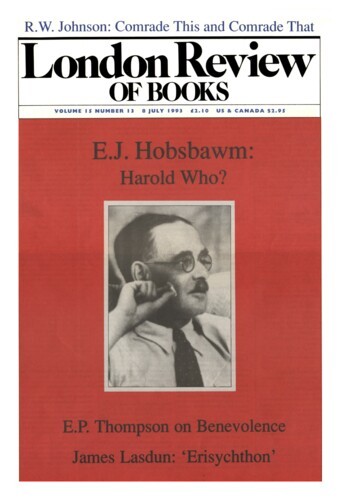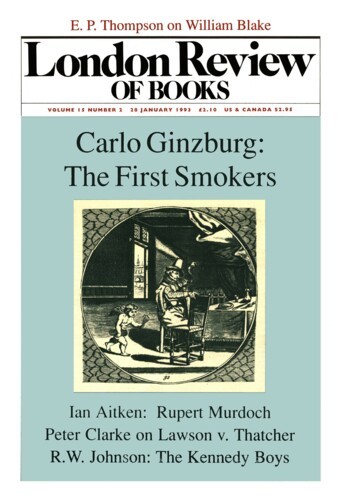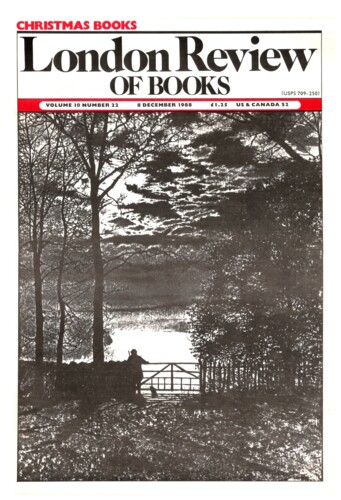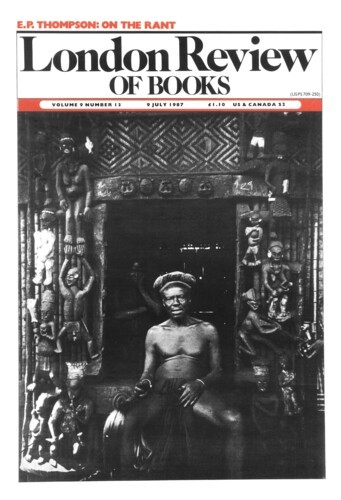Benevolent Mr Godwin
E.P. Thompson, 8 July 1993
A feast for the Godwinians. First comes the handsome facsimile of the quarto first edition of Political Justice (1793) in the series edited by Jonathan Wordsworth for Woodstock Books. This series makes available facsimiles of works which were significant to the Romantic poets, and in particular to Wordsworth and Coleridge. Jonathan Wordsworth’s breezy and unpedantic introduction seeks to bring the leader into that circle at that time, so that s/he can place the two heavy volumes on a desk and be drawn into the self-satisfied philosophical benevolence and contempt for all received opinion and custom which inspired those young enthusiasts. We open them beside the solicitor’s clerk, Henry Crabb Robinson, who later recalled: ‘It made me feel more generously. I had never before, nor … have I ever since felt so strongly the duty of not living to one’s self, but of having for one’s sole duty the good of the community.’ The 1793 edition sold 3000 copies at the high price of three guineas – too pricey for the Government to worry about a prosecution. Woodstock Books will count itself fortunate if it can sell as many. At £150 it will also not be prosecuted.’




